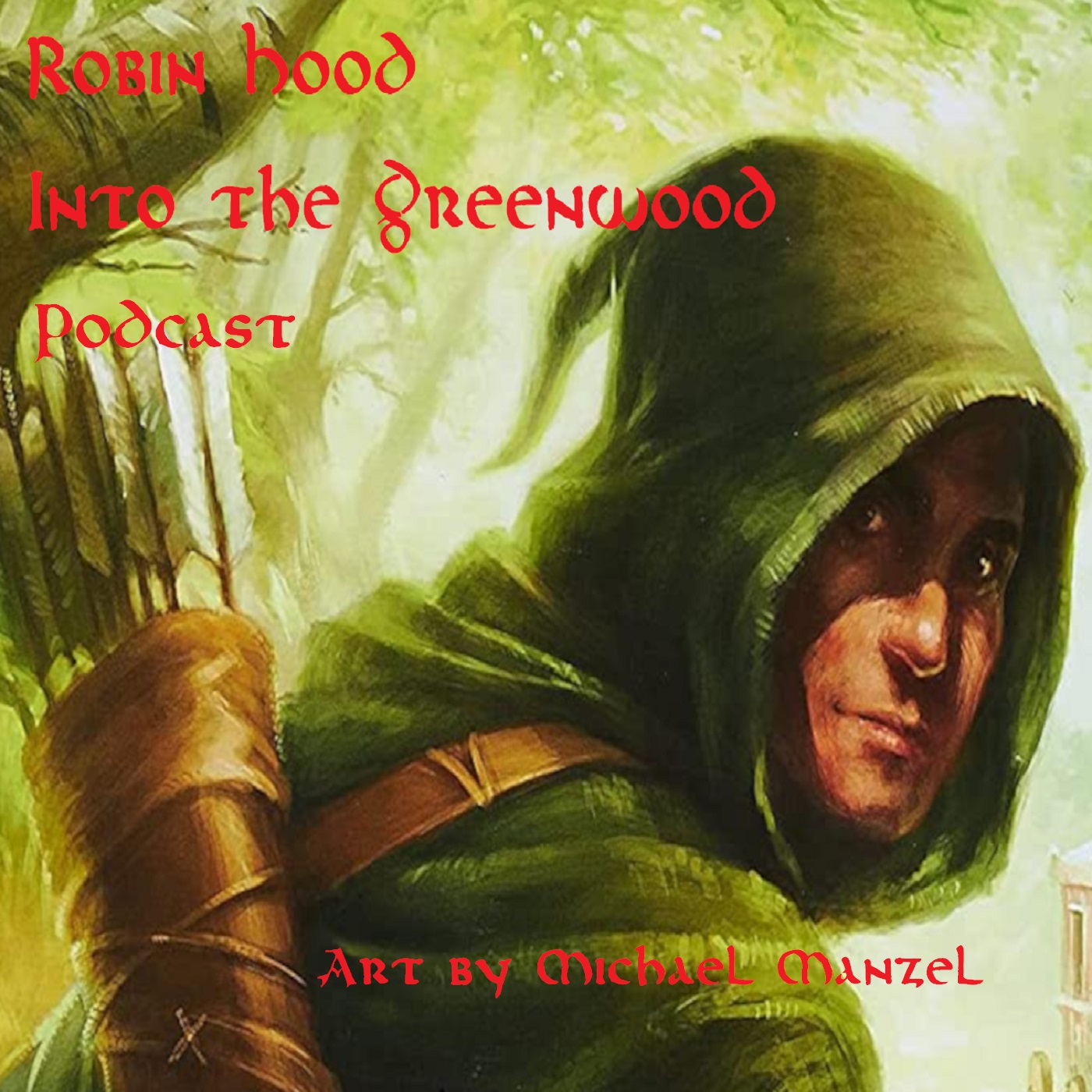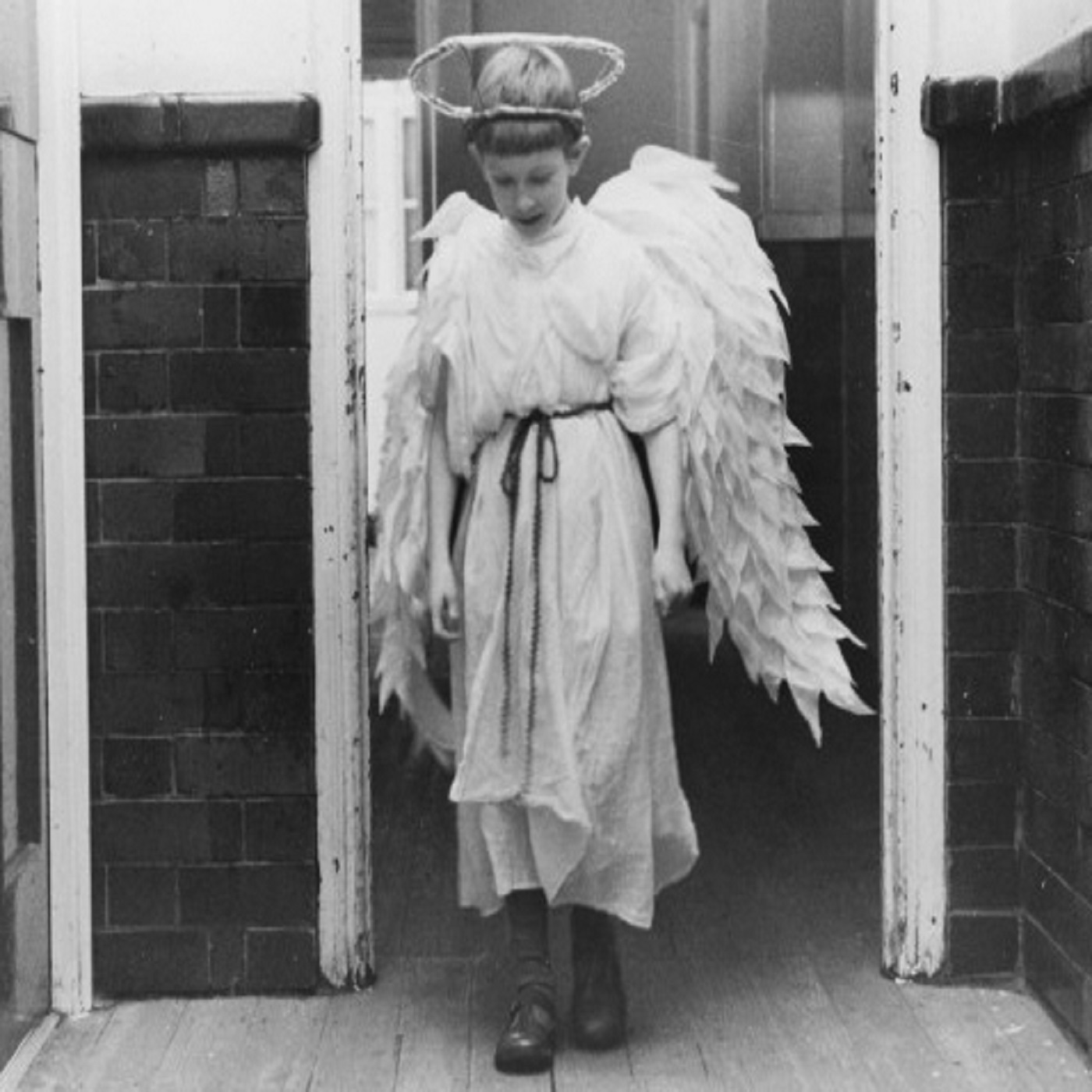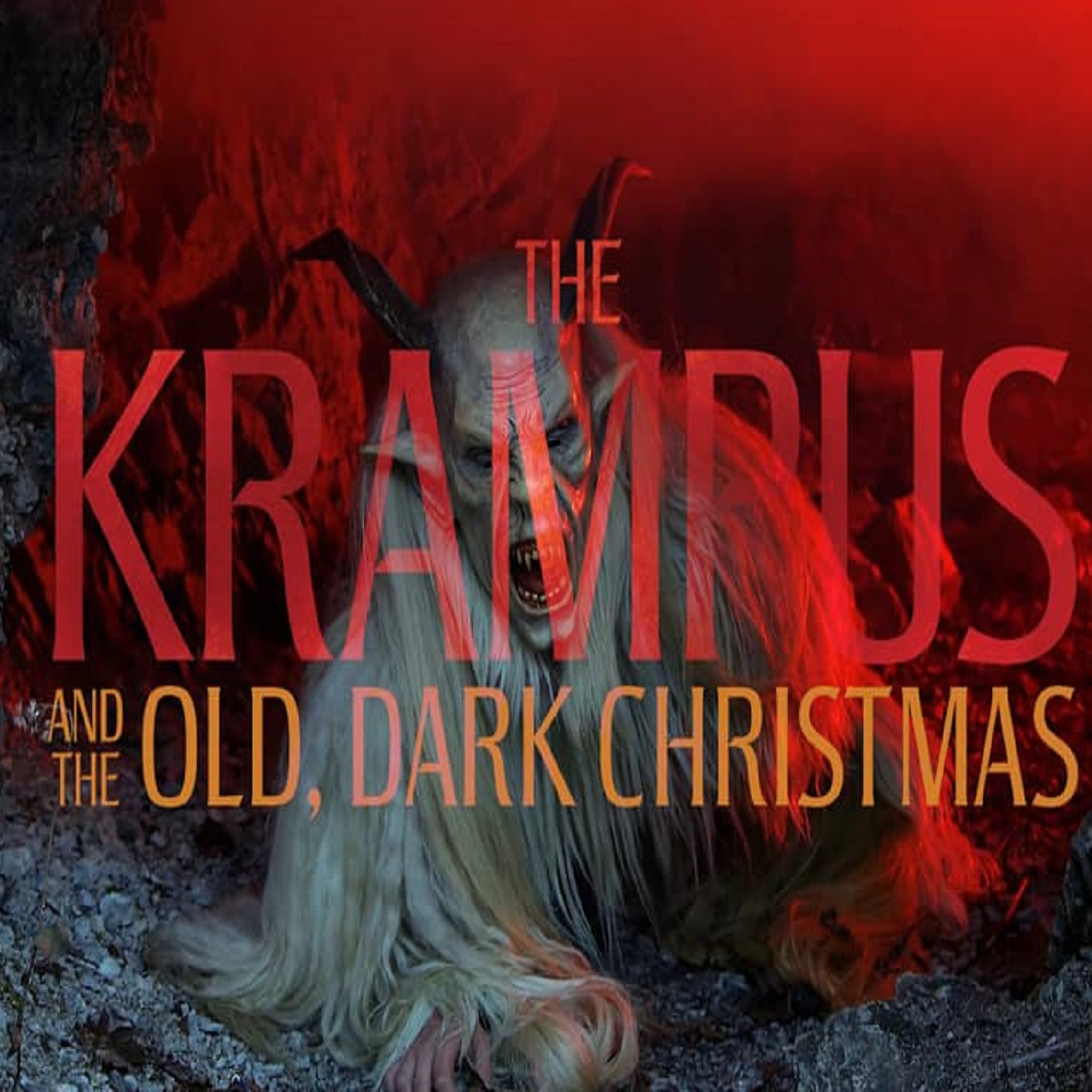Episode Transcript
[00:00:10] Speaker A: Hello, and welcome to the Dream Swarm podcast. This is your home for supernatural film stories and art. I'm your host, magic realist filmmaker Andy Mark Simpson.
Are you sitting comfortably?
[00:00:26] Speaker B: Then we'll begin.
[00:00:30] Speaker C: Hello, everyone, and welcome to the next episode of the Dreamsworm podcast. Today I'm joined by Jared Winchester, who is a screenwriter, and he's going to be talking about LGBTQ characters in fantasy and also in Hindu and other Indian folklore and mythology. Jarad is originally from South India, but has also lived for a long time in New Zealand, has lived in California, and has also lived in Australia. So knowledge of folklore from New Zealand and especially from Indian folklore. Really looking forward to this chat. So welcome, Jared.
[00:01:03] Speaker D: My name is Jared Winchester. I'm actually born in South India. I moved to New Zealand back in 1996, so it's been a long time. But right now I'm actually in Australia.
[00:01:16] Speaker C: So, Jared, you are a screenwriter. So do you have a philosophy that inspires your writing or that guides your writing?
[00:01:25] Speaker D: The biggest question that is asked, the most popular question that's asked, which I believe it's wrong, it's why do we watch movies? We should be asking the question, why do we tell stories? Or what propels us to not just tell a story, but use words to show the story to someone else? If you've read the book Sapien, we're all sociable people, so there's some element of it there.
[00:01:53] Speaker B: Yeah, I have read that book, actually. Yeah. That kind of connection between people, what. What people have in common. And there's that thing of what stories can do. I know later we're going to talk about different cultures, but that there's something that kind of resonates amongst people that is about storytelling, whether that's in the movies or written or a more primal, oral storytelling level that that's what connects people.
[00:02:15] Speaker D: Now, my focus with my writing is actually things like instead of just pushing out the whole story where a gay person is actually traumatized and he comes out on top and it comes out to everybody, and yay, at the end, everybody accepts him and he's with his partner, happily ever after kind of thing, I want to focus on issues like what happens if one of them gets divorced, who pays alimony, who pays child support, and in terms of death, we know that's happening between men and women, but it sure happens in the gay community too. And that's something that I'll be bringing light to.
[00:02:56] Speaker C: And we're also talking about fantasy literature as well. So how do you think that community or those communities are represented in fantasy literature.
[00:03:08] Speaker D: And you know, honestly, I have read through Audible some books, some audiobooks with fantasy fiction. There were a couple of gay characters in there. There were a couple of stories with gay characters in there, but not to the point where it's ready for production or if it's ready for commercial screening kind of thing.
[00:03:32] Speaker B: You think you're like underdeveloped that the realness of the character wasn't under there.
[00:03:37] Speaker D: So the representation of queer or gay characters in major television shows like Neighbors is actually pretty small or non existent. And if they do have those characters, they either make. Make it a butt about other people's jokes or they made him make them a side character trying to support the main characters. And they focus too much on the whole heteronormative scenario. I'm like, what's the whole point? And I can already see what they're going to say about this. They're going to say the audience is not ready or it's not commercially viable. And this is something that Hollywood is known to say.
[00:04:21] Speaker B: So they're kind of shutting themselves off to audiences or assuming this is what the audience wants, or the audience isn't ready for that. But. But the audiences are. Audience want fresh stories, new experiences, points of view that they've not seen before. When you were talking about the gay characters in TV shows, you also mentioned you'd seen it in fantasy. Do you see similar issues in fantasy of characters not being fully realized, or have you come across examples that you think are really good characters from the LGBTQ representations in fantasy?
[00:04:55] Speaker D: I go with the first film that comes to mind is Call Me by youy Name and the TV shows Shadowhunters. Now, Shadowhunters has a warlock and a nephilim falling in love with each other. So that would be. The nephilim here would be Alec Lightwood, and the warlock would be Magnus Bane. So that's the only supernatural type gay character that I can think of which recently just turned out to be one of my favorite shows.
[00:05:24] Speaker B: Yeah. So Shadowhunters, I haven't seen that. I will have to check that out as well. You are very much influenced by folklore and mythology in your storytelling as well. Would you maybe tell us how that influences you? What, what is it about folklore and mythology that you can use? Because. Because you, you are familiar with folklore from a variety of different cultures as well, aren't you? Being from South India and with New Zealand folklore, do they play differently with you for how they influence you?
[00:05:54] Speaker D: Yeah, yeah. Like for instance, if. Let's start with the New Zealand folklore. The folklore that I liked the most was about a creature called the tanifa, which it's spelled T A N I W H A. If you can imagine a dragon like creature with three wings and eight legs.
It's supposed to be a protector, guardian and deliverer of justice. And there are quite a few stories, married stories about the tanifa, but that's what I gravitated to. But when it comes to Indian folklore, there's actually a pattern which it can be both interesting and boring at the same time. Because here we have a demon who prays to one of the tri gods, gets a wish granted to him or her, but attacks heaven. This is Indian heaven. The gods actually flee to one of the tri gods and say, please help us. One of these gods say, oh, I'm going to reincarnate myself as such and such, or I'm going to create a child who will liberate you or something like that.
That's how it goes like. And one classic example is there's a story of Ayyappa story with him. There's a she demon who thought she outsmarted the gods by wishing. Wishing to die in the hands of a child born from Vishnu and Shiva. Now we both know those two gods are male. And she thought she'd outsmarted the gods by saying, hey, the toast. Those two are males, so how can a child be born out of that? But she forgot because they're gods, they can easily take a female. One of them can easily take a female form, which is exactly what happened here. And the child was born and that child was Ayappa, who actually ended up killing the shadeaiman, which means she got her wish.
So it kind of works out like that. But the pattern is still saying gods get at gods get attacked by a powerful demon, they flee to one of the trigods, ask for help, they in turn do something so that the demon gets destroyed and the cycle kind of perpetuates.
[00:08:15] Speaker B: There's a lot of similar stories of people trying to outwit God or attack heaven, but the gods have solutions to that. They find different ways of outwitting that demon.
[00:08:27] Speaker D: Well, which it plays into what you would describe as karma. Yeah, you've heard the phrase karma is a. So that's.
[00:08:35] Speaker B: I mean, I can see why that might be especially strong pattern in India where there are religions too, where karma is a major part of it. But I also think that that karma element, not that it'd be named karma, but in a lot of folklore you get those things don't you. Where there's a comeuppance, there's a lesson, there's a. Because you did that, there's a consequence to it. Now you've learned, like there's an ironic kind of solution to that that happens kind of in folk tales around the world and it won't be used the word karma. But do you think, do you think that's a similarity there?
[00:09:10] Speaker D: Yeah, there is also in the, in the movies, if you remember the movie, Hollywood movie, the man who Sued God for Billy Connolly. Well, guess what? Both Bollywood and Tollywood have their own versions. And they did it kind of. And they did it better. They literally have God in them, have a God character in them.
[00:09:31] Speaker B: Right. Okay. Yeah.
[00:09:33] Speaker D: Helping this atheist character realize that their true devotee is this atheist character who actually questions. Questions God and not just blindly follow it.
[00:09:43] Speaker B: Yeah. So there's a, Like a religious lesson in there, but a religious study, not just a. It's kind of a deep thought about that.
[00:09:51] Speaker D: Yeah. I did notice something else though, because when recently I made a comparison between the Bible and the Bhagavad Gita, what I found was the Bible has prescriptions for punishments for different sorts of sins, but the Bhagavad. But the Bhagavad Gita, if you do an analysis of it, you'll probably find that it has verses in there on how to improve yourself versus where if you. If you do xyz, this is the prescribed punishment, or if you do abc, you get to heaven. So nothing to say in between. How can I improve myself?
[00:10:34] Speaker B: Everything's extrinsic in the Bible. Whereas that intrinsic thing of making yourself better, going down a better path, that's in the Bhagavad Gita.
[00:10:43] Speaker D: I noticed that, like, if I was to come across a Christian or any religious believer, I would encourage them to read their scripture. The next time they sit down to read their scripture, I'd ask them to focus on an entire chapter, start to finish. Don't stop until they get the full context, the full, true context of it. So that's what I would encourage them to do. If next time they pick, they pick a worse out of the blue and quote it and use it to judge.
[00:11:19] Speaker B: The gay community, for example, where other verses would come to that, or other verses would say, also, don't eat meat, don't eat this, don't do that.
People pick and choose which ones to follow. Whereas actually if they read it all in context and then look at the spirit of it, then they might choose a different path. And be more kind to others as well. You've talked a lot about the different elements of Indian folklore that kind of demons trying to trick the gods and the gods having solutions to that and kind of karma playing out. Does that influence your own right. And your own projects? Are they linked to folkloric specific stories or is there a pattern there within your storytelling as well?
[00:11:59] Speaker D: Yeah, interesting you should ask that question because I've been working on a screenplay specifically that adds in an element of where one of the tri gods actually helps the character realize his purpose in life. Like a Bhagavad Gita style setup. This character, I like to call him a super God. I kind of have added elements of Indian folklore or Indian mythology with. I have mixed it with Greek mythology because if you hadn't noticed, if you take a look at Greek mythology, Zeus, Poseidon and Hades here in Indian mythology, we have Brahma, Vishnu and Shiva. For me, recently, I've been more attracted to Shiva more than Krishna. Because if you look at any picture of Shiva or any statue of Shiva, you'd almost find him in a meditative posture, normally quiet, he normally non responsive, not, not reactive. The only time he jolted out of it is if something bad's happening in the world or if the gods come to him for help. And believe this or not, he has a third eye. If he opens it, Zeus help you, you'll be turned to ash.
[00:13:18] Speaker B: So that's the one you're kind of drawn to at the moment. And is that kind of meditative element? Is that, does that help your characters as well?
[00:13:25] Speaker D: Yeah, because like Poseidon, he actually has a trident. And that trident has a couple of little drums. You know what I'm talking about? They're the one where you just, yeah, shake it in your hand.
[00:13:36] Speaker B: The kind of Karate Kid. Two ones.
[00:13:39] Speaker D: Yeah, yeah, yeah, yeah, yeah. It's one of them. But also if you look closely on the top of his head, he has the, the Ganges river flowing out of him and he also has the crescent moon. Each one of those has a little bit of mini story behind it. And I was just listening to another podcast the other day, just, just out of curiosity, apparently the snake that occupies his neck, it's wrapped around him three times. Apparently that's for the beginning, middle and end.
[00:14:13] Speaker B: Which is very relevant for storytellers, isn't it? We're always told that get the. You get a middle and end in there, that kind of journey element of a story, starting with something that character not developing over time until you get a different solution. And A different character at the end. So what are you working on at the moment?
[00:14:31] Speaker D: I actually have in mind Australia had a couple of shows called hd. What just. Just had water or. And Mako Mermaids, which is show about mermaids. I'm working on a version of that, but like a. Like a gay version of that where I have a merman and a warlock fall in love with each other and I create a whole new world surrounding them. The merman is the key to help balancing both their worlds. So that's what I'm working on.
[00:15:02] Speaker B: That pulls together different elements of mythology, that world building again, the details in there. But sent me it on a fully developed LGBTQ character as well. Even in a fantasy setting, but making that still a fully realized character.
[00:15:18] Speaker D: Yeah. Because instead of me simply just defaulting to another boy meets girl setting in a fantasy world, I want to try and blend in the gay world with my fantasy world. This is not just my challenge, but this is my, shall we say, my courage, my conviction, where I actually, I'm planning on using dialogues not in plain English, but in Shakespearean language.
[00:15:46] Speaker B: All right.
[00:15:47] Speaker D: Yeah. Bring bringing Shakespeare. Shakespearean into the. Into the fantasy world and all my other writing.
[00:15:54] Speaker B: That sounds like a challenge in itself and the rhythm of that and. But it's still. When Shakespeare's acted out and when it's kind of read for the what's underneath it, what it's saying, then that really resonates with people still. It's not just words that sound old fashioned. It's. There's real feelings, real emotions under there. So that sounds like a good project. Sounds an interesting one and fresh and something that we haven't seen before. Jared, what is the best way people can follow your work and stay in touch with what you're up to and follow your next project?
[00:16:27] Speaker D: Well, I am definitely on Facebook if you look under Jarrod Winchester or Jared Dean Winchester if you catch the reference there. But I'm also. I've got a couple of YouTube channels. One is dedicated to my production company, Spring Whales Productions. It's three words. Spring Whales, as in the animal, as in now. That's my company channel, my personal channel. I call myself the Story Dude. Again, three separate words.
[00:16:57] Speaker B: I'll put links on the Dream Swarm website and on the podcast notes as well, where people can go and follow the channels on there too.
[00:17:06] Speaker D: Yeah, yeah. And I'm also on X and LinkedIn if people want to find me there.
[00:17:11] Speaker B: So X and LinkedIn and the Story dude and Spring Whales productions on YouTube.
[00:17:17] Speaker C: Well, thanks, Jared. It's been great to meet you. Thanks very much for coming on the show.
[00:17:28] Speaker A: Thank you for joining us for this episode of the dreamsworn podcast and been your host, Andy Mark Simpson. We hope you'll join us for the next one. Remember, you can subscribe to stay in touch with future episodes and follow us at the website www.dreamsworm.org or follow on Twitter and Instagram reamswarm. And we look forward to joining you for more supernatural film stories and art.
In the meantime, be creative, be curious, be kind.
We'll see you soon.


